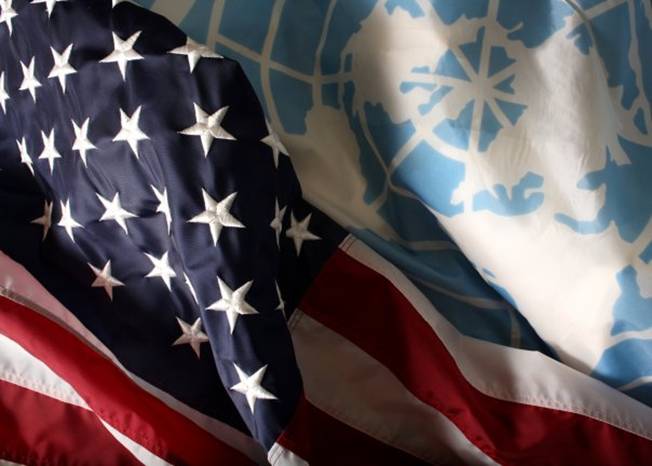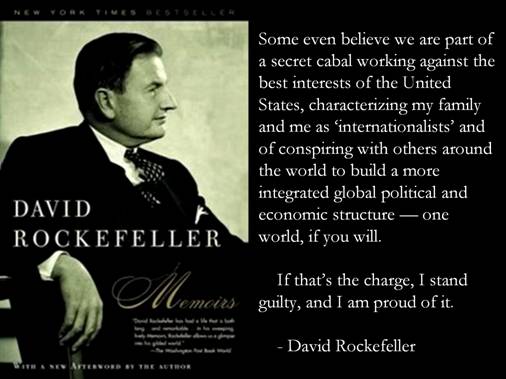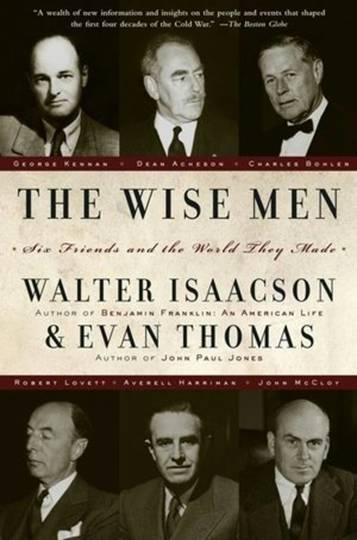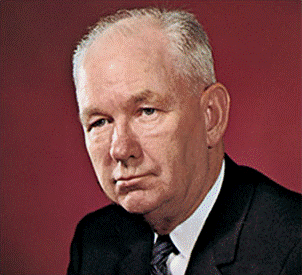|
Interview with NWO researcher Will Banyan
By Rolf Kenneth Myhre [RKM]
Final version: 24. April 2012.

The US elite have always been split in their attitude to transnational bodies like
the League of Nations and the UN, a split that few NWO researchers have recognized.
Will Banyan rejects many myths and hardcore opinions among NWO researchers, but at the same time he gives the remaining content a solid academic platform. His work goes toward an integration of the best insights from NWO researchers and the best analyses from the political Left.
Who is Will Banyan?
Will Banyan’s online articles are found on the webpage The Third Section, together with the following presentation:
“Will Banyan, BA (Hons) & Grad. Dip. (Information Science), is a writer specialising in the political economy of globalisation. He has worked for local and national governments as well as some international organisations, and the private sector. He has written extensively for NEXUS Magazine, including a six-part series on the Rockefellers and a four-part series on the Round Table. He has also been published in the California-based Paranoia Magazine. He is currently working on a revisionist history of the New World Order and an analysis of the anti-UN ideology behind the ‘War on Terror’.”
1) When and why did you start to study NWO literature, and turn into an NWO researcher?
[WB:] I first started examining N.W.O. literature in the early 1990s. Some of the first publications I looked at were magazines like Nexus, Spotlight and International Currency Review. I was intrigued by the claims made by some of the articles in these publications and sought out some of the longer treatments, books such as Gary Allen’s None Dare Call It Conspiracy and Gary Kah’s En Route to Global Occupation. I now have a personal collection of some two hundred conspiracy or N.W.O themed books.
My research work was a natural outgrowth of my initial fascination with the claims made in these books which went largely against what I was being taught in university, and what I was also reading. I was reading a lot of Noam Chomsky at the time. The problem, as I saw it, was that most of the claims by these mainly American conspiracy authors was tainted by the fact that the Cold War was coming to an abrupt halt with the demise of the USSR. This event was particularly significant given that much of the anti-N.W.O literature from the 1960s through to the end of the 1980s had consistently predicted the exact opposite: convergence between East and West on communist not capitalist terms. Another thing I was struck by was that obsession of these mostly US authors in proving that the biggest capitalists were secretly funding and supporting communist “subversion”. Yet the actual trajectory of economic management in the US, and increasingly in Western Europe, was in the opposite direction: towards less regulation of markets, the continued weakening and contraction of the welfare state, and moves towards global and regional free trade. But at the same time I would credit some of these authors, despite major flaws in significant parts of their economic and geopolitical analysis, in being closer to mark in terms of identifying how democracy is undermined by the concerted and organised actions of elites.
It was that conclusion which has driven my research. Bascially have tried to draw together a particular general finding about the conduct of elites and their overall goals from these mostly US N.W.O researchers with the conclusions of left-leaning accounts of the globalisation and US imperialism by authors such as Noam Chomsky, George Monbiot, and Andrew Bacevich. My aim is to marry these otherwise opposing streams because they are in different ways on the right track, but because of ideological preconceptions unwilling to countenance certain conclusions. My first article, about the Rockefellers, was published in Nexus magazine in 2003. I have published numerous other articles since then in Nexus, Paranoia and most recently in Lobster. At the same time I have been working sporadically on a much longer work which seeks to combine all my research into a coherent whole.
2) Several elite factions, each with their own NWO vision
[RKM:] In your articles you distinguish between at least five major elite groups that during the 20th century have talked about, and worked for, their own specific vision of a New World Order. And these visions differ from each other both in strategies and in aims. Below I have tried to sort out from your articles these elite groups, their NWO agendas, and some of their main proponents.
a) The elite group who worked for a consolidation of the British empire, with or without help from USA, discussed in your article A Short History of the Round Table – Part 1 (rev. 2005). You write that even within this group there was major disagreement about the ultimate aim:
“Within the Round Table, for example, an organisation formed in 1909 for the explicit purpose of federating the British Empire, there were divisions between imperialists and world government proponents. Some Round Table members, in particular Lionel Curtis, believed imperial federation could be a vital stepping stone towards formation of a ‘world state.’ Other members, in contrast, favoured imperial federation as end in itself, one that would consolidate the empire, protecting it against the growing rivalry of the United States, Germany and Russia. These divisions came to a head during the Paris Peace Conference, with the imperialist faction trying to weaken the League of Nations, while the world government proponents took the opposite course.” (The Illusion of Elite Unity)

Lionel George Curtis (1872-1955)
b) The “liberal (or Wilsonian) internationalists” who want a democratic and strong transnational body, at least more democratic and stronger than the present UN. You have identified some of the most important proponents of this group:
c) The group who work for a US-dominated plutocratic-oligarchic New World Order, or an economic Pax Americana, in which: Global and regional free trade and neoliberalism will be the economic law; multinational corporations will have free reign; only those “philantropic” foundations and NGO’s that dance to the tune of neoliberalism will be supported. Transnational bodies (like UN) will only achieve authority and power to the degree that they have been shaped to support and maintain this neoliberalistic agenda. This NWO agenda has been called “The Cold War Consensus” due to being the Establishment’s consensus from the 1940s through to the 1960s. The agenda was based on Council on Foreign Relations’ War and Peace Studies Project (1939-1945), and later supported in the report Prospect for America (1961) by Rockefeller Brothers Fund.
Some of the most important men behind this NWO agenda were:
d) Pragmatic Realpolitik: accepting and adjusting to “a multipolar balance of power”. You have discussed how Henry Kissinger and Richard Nixon represented this ideology, which was rather unwelcome and unpopular to the Establishment, in your article Nixon, Kissinger and the New World Order: A Revisionist History (2007).
e) Various groups who have worked for a totalitarian Pax Americana being realised in an aggressive and militaristic way:
Banyan, would you like to comment on the above summing-up?
[WB:] I would not necessarily disagree with this summation of the themes which emerge in my work. I think the key one, which may not be a revelation to audiences outside of the US, is that the US leadership is paramount to the N.W.O., whatever form it takes. This contrasts with the views popularised by US authors which see their country as the principal victim of creeping globalism, while it is only US leadership, above all, which at this juncture, can bring it about. The need for US leadership, first in collaboration with the British, and later as the pre-eminent superpower, has been around for at least a century. My works try to highlight that and how within the US power elite different factions have emerged over the years with different visions on how to use US power globally. What the US authors identify as a pro-world government strand, I characterise as “liberal internationalism”, because that is what its proponents call it. There is a tendency, though, amongst the US analysts, to attribute ideological aims to the liberal internationalists that have more in common with social democratic and socialist parties from Europe, when in reality most liberal internationalists reflect the goals of the US corporate elite, which has in the US succeeded in rolling back most marginally socially democratic reforms. The tent cities, the expanding underclass, the woeful public health system, and the general degradation of infrastructure in the US attest to that.
The goal of the liberal internationalists is basically to transmit and to a degree, transfer, US power to a set of international institutions which will organise the world both economically and politically, thus reducing the pressure on the US. It is intended to be, in part, a cover for US hegemony, but also in the longer-term a structure for global elites to exercise their power through as US hegemony eventually fades, as it will eventually happen, as all empires are so fated.
But the liberal internationalists, which emerged as a force under Woodrow Wilson, have not succeeded in truly dominating the foreign policy thinking of the US power-elite. They have had to contend with other factions over the years, such as Theodore Roosevelt’s’ conservative internationalists, who were the precursors to Cold War ‘Wise Men’, Nixon and Kissinger’s realpolitik, and the neo-conservatives of today. And of course, one should not forget that until 1941 the isolationists dominated public discourse on foreign policy in the US. It took World War Two to effectively break their stranglehold. The exclusion of isolationism continues to this day, evident in the marginal position of the so-called “paleo-conservatives”, best represented by Ron Paul.
3) Myths and hardcore opinions among NWO researchers
[RKM:] In books and articles trying to expose the “NWO agenda” the reader is often confronted with a whole complex of various ideas, opinions and “facts” that by time and by various authors have been repeated again and again, and thus almost have become dogmas, despite very little (or none at all) hard evidence to support them. Many examples of such “core ideas”, which seems to multiply in various versions on the Internet, can be given:
- that a network survived after the dissolution of Weishaupt’s Illuminati Order, and that this network today is high up or at the very top of the Western pyramid of power;
- that the Rothschild patriarch in the 1770s in secret met with a powerful group to plan for a One World Government (a claim made by William Guy Carr);
- that the “NWO agenda” is a “Jewish conspiracy”;
- that the freemasons in general are supporting and participating in the “grand work” for a totalitarian NWO;
- that ”the Protocols of the Elders of Zion” was a genuine document that described a Jewish plan for global domination (instead of being an antisemitic hoax);
- the existence of ”Illuminati bloodlines” (Fritz Springmeier);
- that some of us Homo sapiens, especially among the royalty and the power elite, are “shape-shifting reptilians” (David Icke).
To make it easy for those readers unfamiliar with the work of Banyan, I have listed below in which articles Banyan has criticized certain “pet” and hardcore opinions:
a) The assumed unity of the “NWO network”, discussed in The Illusion of Elite Unity.
b) Several hardcore opinions about the Rothschilds, discussed in The 'Rothschild Connection': The House of Rothschild and the Invasion of Iraq (2012).
c) Some of David Icke’s theories and his way of responding to critique, discussed in Research Note: The Irrelevant Reptilians (2008) and in The Sin of Disbelief… David Icke vs. “Forum Man” (2011).
d) The assumption that being a member of certain elite clubs, or just having participated once, automatically means that they are working for a totalitarian NWO. Banyan writes [source]:
“The typical process of deduction for most populist New World Order accounts involves identifying participants in the conspiracy through their membership of suspect organisations and their other elite connections. Underlying this is an assumption, generally untested yet at the same time taken as a self-evident truth, that certain links inevitably mean certain things. Membership of the Council on Foreign Relations, to cite the most common example, is typically regarded a proof of ones complicity in the world government plot.”
e) The assumption that being superrich in itself is evidence of supporting and participating in a totalitarian NWO agenda. The question is how you use your wealth, influence and power; and specially how you are able to involve the State in working for your objectives. Banyan writes (source):
“David Rockefeller's strategy also reveals something fundamental about wealth and power: it does not matter how much money one has; unless it is employed to capture and control those organisations which produce the ideas and the policies that guide governments and the people who eventually serve in them, the real power of a great fortune will never be realised. As Gary North reminds us: ”Self-funded conspiracies rarely amount to anything. They have neither the leadership nor the supporters to produce anything of significance. It is when they get the state involved that their schemes become a major threat to the public good”.”
Banyan, would you like to comment on these examples?
[WB:] To give a simple answer, I don’t like sloppy research or shoddy reasoning. A lot of anti-N.W.O works positively bask in it, making evidence-free allegations without an iota of shame or self-awareness. I poke holes in such theories as part of my work. I believe in trying to present an honest and accurate account to readers based on the evidence at hand. Sometimes that involves tackling what others have said and point out the flaws in their reasoning and more often than not, the failure of many of these researchers to prove their case. For example, my latest article, which appears in Lobster Magazine, The ‘Rothschild Connection’: The House of Rothschild and the invasion of Iraq (2012), critically assesses the claims made by Henry Makow, David Icke, and Nicholas Hagger. They all made claims as to Rothschild complicity in the decision to invade Iraq, but provided no evidence to support their charge, especially the claim made by Icke and Makow that up to nine members of George W. Bush’s administration were ‘Rothschild agents’. An allegation like that might work as a propaganda tactic, but not as serious research. I tried to see if the public record could in anyway support such an allegation. Readers may like to check the paper to make up their own mind, but while some evidence I dug up is suggestive, there was no smoking gun.
But through critically examining these theories we can also obtain answers and insights that would otherwise be lost. In the case of David Rockefeller, for example, I went beyond the more extravagant myths about his political power to dissect it, to discover its origins and how he exercised it, and what his vision was. So, rather than being a distant pawn of the Rothschilds, a “reptilian hybrid”, or some other mysterious entity, David Rockefeller’s political power is largely a consequence of his own efforts building on his financial and political inheritance. His power was derived largely through his participation, leadership and funding of a series of elite policy-planning organisations, such as the CFR, Trilateral Commission and the Bilderbergers. Rockefeller effectively and adroitly transferred his wealth into political influence. He got to know quite well the people that would be in White House, if not as president, he was keyed into the key advisers. He was also well-connected to the State Department. That gave him avenues to push his views. What he did was a take a central role in organising the elites who circulate through the US Federal Government, particularly in foreign and economic policy, so he could have a voice, a voice with far greater pull than any ordinary US voter, and one that avoided public scrutiny. There’s some telephone transcripts that were released some years ago of David Rockefeller talking with Henry Kissinger when the latter was Nixon’s national security adviser. They talk like old friends and they talk about foreign policy. Rockefeller was a not a member of the Nixon Administration, he was a private citizen, but he had access and that’s what counts.
The other thing, I suppose, is quite simply that I cannot abide by researchers who make claims based on a failure to consult primary sources or to really dig deep to find out what actually. For instance, of all the books and articles I’ve seen quoting from Richard N. Gardner’s article “The Hard Road to World Order”, which appeared in Foreign Affairs (April 1974), I very much doubt even a tenth of those writers actually bothered to find and read the article, or to locate his other works to understand the context. From my research I have been able to illustrate that context, including the fact that Gardner had first presented much of that article as a paper at the Pacem in Terris conference held in Washington DC in October 1973 and that he was a strong critic of the Nixon Administration’s realpolitik. More importantly, Gardner’s proposals were not even original; they were an updating of David Mitrany’s functionalist approach to world order. Mitrany’s incremental approach to world order had first been proposed in a pamphlet he had produced for the Royal Institute for International Affairs back in the 1940s. It’s that sort of detail I find myself bringing forward as I check our these claims. Often there is a far more interesting story about elite activity once you get past the sensationalism.

Book cover
4) How the US elite in just five years radically changed their attitude to the UN
[RKM:] I find very interesting your discussion of how the US elite and the US governments in the period 1943-47 radically changed their strategic thinking about the role and the usefulness of the UN from a US point of view. You discuss this in your article The Illusion of Elite Unity, in the subsection “6. The Mask of Containment?” (page 22-28).
If I understand you right, the dominant thinking among the US elite in the years 1943-45 was that the UN would be a useful instrument as a peacekeeping transnational body, which would allow the US financial elite to discreetly conquer the world economically by establishing global and regional free trade. But then, in the years 1945-47, the elite group around “the Six Wise Men” got increasingly more convinced, and argued increasingly stronger to the Truman administration, that the UN would be a hindrance in all ways to their vision of a US-dominated neoliberal New World Order. The ideological, the political, the military and the economic realms of the international world with its alliances were simply too integrated that the “peacekeeping business” could be an “isolated project” left to the UN.

Book cover
The elite group around “the Six Wise Men” reached the conclusion that they wanted to conquer the world in a more aggressive way than could be done through an effective UN. This conclusion was finally expressed by one of the Wise Men, George Kennan, in his famous article The Sources of Soviet Conduct, printed in the CFR journal Foreign Affairs in July 1947. This political stance needed a benevolent mask to be shown both to the international community and to the US population. Thus the creation of the policy of “containment of Communism” and the creation of strong anti-Communist propaganda to the US population. This mask have been exposed by Noam Chomsky in his book World Orders Old and New (1996) and by Andrew J. Bacevich in his book American Empire (2002).
[WB:] What I am trying to show is that the notion of elite unity in favour of world government is an illusion, and the shift in US post-war strategic policy is a classic example of this. The initial pro-liberal internationalist bias in US grand strategy was successfully undermined by other members of the power-elite, utilising the Soviet threat. Such battles continue to this day, most notably between the liberal internationalists and their new foes the neo-conservatives who have a vision of naked US global hegemony, stripped of all international institutional covers and bereft of any restraint. For the liberal internationalists, who remain convinced of looming US decline, this is a short sighted policy that could damage the interests of the elite, who are better off uniting with their global peers and embedding their interests in a system of global governance. But only US leadership can effectively establish it, and that remains the key struggle, one that really started after World War One with the dispute over US membership of the League of Nations.
5) The worldview of John Birch Society
[RKM:] The US political elite’s creation of strong anti-Communist propaganda resulted in a very odd and unexpected fruit, the foundation in 1958 of the John Birch Society (JBS) by Robert W. Welch Jr. (1899–1985) [Wiki: Robert W. Welch, Jr.; John Birch Society]. The JBS worldview was in the first years solely “Radical Right”, in the meaning of being anti-communist, socialism being considered “communism light”, and by its strong conspiracist perspective of seeing covert communists and hidden communist plots everywhere. Welch, a paranoid victim of the Establishment’s anti-Communist propaganda, reached the conclusion that almost the whole American Establishment was deeply involved in a Communist conspiracy to de-sovereign US and include it in a One World Commie Government.

Robert W. Welch Jr. (1899–1985)
Then, in 1966, Welch published the essay The Truth in Time [see Welch’s lecture from 1966]. The content in the essay became the new and expanded version of the JBS worldview. This essay makes Welch one the first “superconspiracy theorists”, a term coined by Michael Barkun (Wiki: Conspiracy theory #Types). In this expanded version of the JBS worldview, the “Master Conspiracy” began with Weishaupt’s Illuminati Order in 1776. From this Order a secret network of “Insiders” survived, which still are working behind the curtains today. This network have, according to Welch, in the last two centuries dominated Western history, working for a One World Government. Communism, socialism, fascism and many other political-economical –isms that in Welch’s view favour collectivism and globalisation at the expense of individualism and isolationism, were just masks and traps to fool the populations, ultimately leading to the same totalitarian One World Government. The Rothschilds and the Rockefellers, elite private clubs like the Council on Foreign Relations, the Bilderberg Group, and the Trilateral Commission, were just “fronts” for this project.
The JBS worldview has been an inspirational source for a whole school of conspiracy authors that for a shorter or longer time were JBS members. Examples of such authors are Gary Allen, G. Edward Griffin, James Perloff, Phyllis Schlafly, and Alan Stang. Authors like Antony C. Sutton, Jim Marrs and Daniel Estulin also seem to have been inspired, in some of their interpretations of Western history, by this worldview. Most of these authors have given great emphasis to professor Carroll Quigley’s writings and interpretations of the purpose of The Round Table in his book Tragedy and Hope (1966). While the JBS worldview certainly seems paranoid in its interpretation and connecting of various “deep events”, this doesn’t mean that the current standard academic interpretations of the deep events are correct.
[WB:] I like the characterisation of the JBS as an “odd and unexpected fruit” of Cold War propaganda. They certainly were, but in the process their enthusiasm did expose some aspects of the US system of government that the Establishment would have been happier not to have had exposed to public scrutiny. But equally the increasingly outrageous assessments of the JBS, which have nurtured many other researchers over the decades, have done much to ensure that any undue focus on the Establishment, by anyone other than ‘serious’ researchers, is marginalised as the work of the paranoid and deranged.
Nevertheless I agree that standard academic interpretations fall short in terms of explaining elite behaviour. Though not quite as short as many might suppose. In their zeal to ignore academic treatments, for failing to come to the same conclusion as them, many conspiracy authors ignore some of the good work out there. This includes some pioneering work on the power elite in 1970s and more recent work by a number of new scholars on the CFR, Round Table and members of the elite in Europe and the US.
6) Who and what aims is CIA working for?
[RKM:] In your articles you have said very little about CIA. But CIA is also working for some kind of New World Order, which seems to be both US imperialistic and totalitarian. And CIA – in contrast to the short-term politicians and administrations – has been a constant force in work since its foundation in 1947. Would you like to say anything about how CIA fits into the Big Picture of US’ NWO visions? What authors and books would you recommend?
[WB:] Though undoubtedly important as both a source of strategic intelligence to the White House and the US national security establishment, and as a leading tool for covert operations for the US, I tend not to focus on the CIA, partially because I see its role as an instrument of US hegemonic power, not its source. My focus is on the various sources of US power, the originators of the strategy for the New World Order, and what their vision is. The other reason is that such work would be even more involved and complex than my current focus. In short, focussing on the CIA would distract from what I regard as the bigger picture. But I think other authors, such as Peter Dale Scott, have shed more light on the covert side of US hegemony.
7) How is your work on a revisionist history of the New World Order going? Will it be a thick book, and when do you expect it to be finished?
[WB:] At present work on the book is sporadic. The book if and when it is finished, will be large, and probably more than one volume.
8) Would you like to comment on any visions or ideas about a utopian New World Order that you sympathise with, or what the first steps in the right direction in your opinion would be?
[WB:] To be perfectly honest, I don’t really have one at the moment. There was a time when I did, when I was younger and more idealistic, but at present I don’t have a clear vision of what sort of “New World Order” I might be sympathetic to. The more I study the various attempts to build a utopia, the more pessimistic I am about the ability of those who take power in the name of humanity to resist the temptations of authority and abuse it to their own ends. I also think that while the pace of modernisation and development is accelerating in many parts of the world, particularly China and India, the challenges for global stability are likely to increase. While there remains some hope that technological innovation will resolve some of these problems, a growing world population, diminishing resources, particularly cheap energy for transportation, and continuing move towards a higher, and potentially unsustainable standard of living for more and more of the world’s population are of concern and will test any attempt to make the world a better place to live in.
**************************************************
Will Banyan’s online articles can be found on the webpage The Third Section.
**************************************************

Back to: Rolf Kenneths theme page "Oligarch History" // Home |